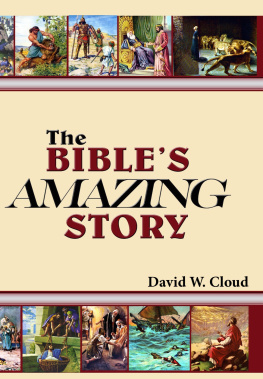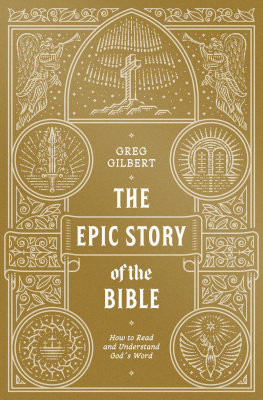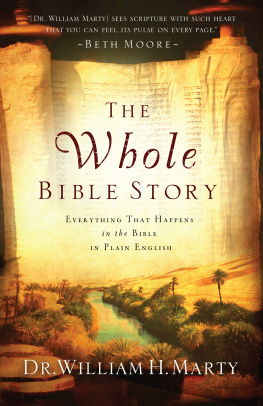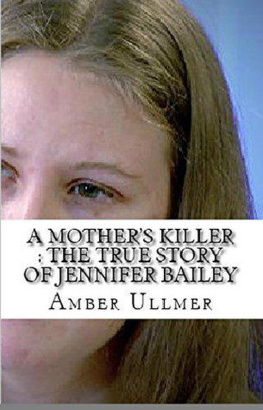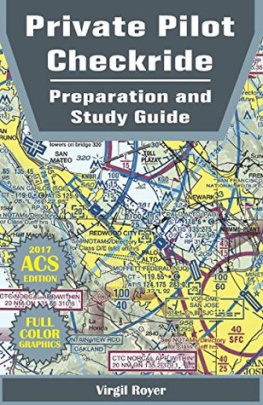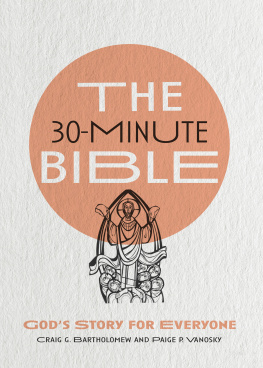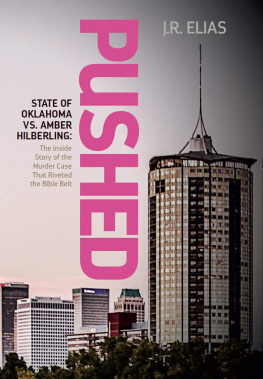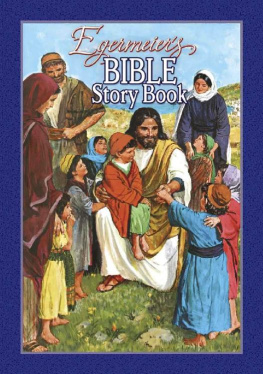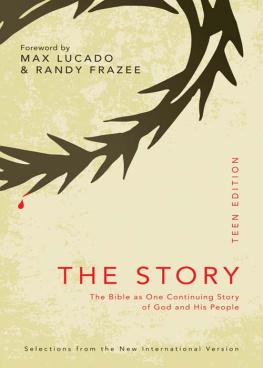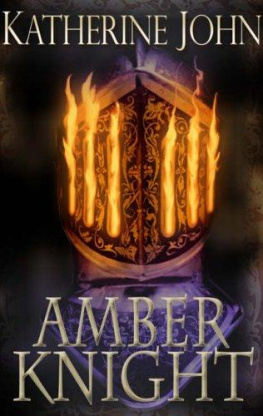Amber Royer - Story Like a Journalist - Story Bible Overview
Here you can read online Amber Royer - Story Like a Journalist - Story Bible Overview full text of the book (entire story) in english for free. Download pdf and epub, get meaning, cover and reviews about this ebook. year: 2020, publisher: Amber Royer, genre: Romance novel. Description of the work, (preface) as well as reviews are available. Best literature library LitArk.com created for fans of good reading and offers a wide selection of genres:
Romance novel
Science fiction
Adventure
Detective
Science
History
Home and family
Prose
Art
Politics
Computer
Non-fiction
Religion
Business
Children
Humor
Choose a favorite category and find really read worthwhile books. Enjoy immersion in the world of imagination, feel the emotions of the characters or learn something new for yourself, make an fascinating discovery.

- Book:Story Like a Journalist - Story Bible Overview
- Author:
- Publisher:Amber Royer
- Genre:
- Year:2020
- Rating:4 / 5
- Favourites:Add to favourites
- Your mark:
- 80
- 1
- 2
- 3
- 4
- 5
Story Like a Journalist - Story Bible Overview: summary, description and annotation
We offer to read an annotation, description, summary or preface (depends on what the author of the book "Story Like a Journalist - Story Bible Overview" wrote himself). If you haven't found the necessary information about the book — write in the comments, we will try to find it.
Story Like a Journalist - Story Bible Overview — read online for free the complete book (whole text) full work
Below is the text of the book, divided by pages. System saving the place of the last page read, allows you to conveniently read the book "Story Like a Journalist - Story Bible Overview" online for free, without having to search again every time where you left off. Put a bookmark, and you can go to the page where you finished reading at any time.
Font size:
Interval:
Bookmark:
Story Like a Journalist: A Workbook For Novelists
Build Your Story Bible Using the 5-Ws and H
By
Amber Royer
Hemmingway worked as a newspaper journalist before he became a fiction writer. E.B. White did a stint at the New Yorker. L.M. Montgomery was a reporter in Halifax before tackling Anne of Green Gables. Margaret Mitchell got her start as a reporter for the Atlanta Journal Sunday Magazine.
What do these writers have in common? An excellent sense of character, and clean prose that clearly puts forward the characters goals and motivations. This ability may well come from having mastered the journalistic art, which emphasizes creating a sound story that balances logic, research and emotional authenticity.
Even if youre working in a purely creative world, you can still use those principles, and learn to organize and research like a journalist, and to ask the questions a journalist asks either before or after you write your manuscript.
Story Like A Journalist combines journalistic planning strategies and novel writing theory into a systematic workbook that takes you from determining the best protagonist for your story to imbuing your work with meaning. Completing the exercises will allow you to build a Story Bible for your novel. These techniques can work for both planners AND discovery writers. You can work through the entire workbook before beginning a project or you can use the individual worksheets as needed when you get stuck or need to brainstorm.
One of the most basic lessons in journalism centers around the classic 5 Ws and H. In order to write a story people will want to read even if that story is a complete fiction -- you need to answer all of them.
Who? What? When? Where? How? Why?
Give a reader an answer for each, and the reader will have a good bead on what actually happened and the context in which it happened. T hese are the same questions you need to answer when writing fiction. You just need to frame them slightly differently.
Instead of asking who was there when a particular set of events happened (as the journalist does) the novelist asks which characters NEED to be in a particular scene for the scene to work and to allow those characters to get the information they will need for the rest of the manuscript.
In addition to interviewing (in this case fictional) people to find out why they took certain actions (as a journalist would) the novelist looks at potential patterns of events and asks what pattern these events need to form for the reader to understand a universal truth which gives your book theme and answers the question of why the book matters.
Work an initial version of these 5-Ws into your opening chapter. Then as the story progresses, give the reader more details on WHO your protagonist is, WHAT shes really gotten herself into and WHY the chaos around her is making her arc.
This book is organized into sections revolving around each of those questions, so that as you complete the worksheets in each section, you will gain a clear understanding of how that aspect of your novel world works. There is also a section showing how thinking like a journalist can help you create more convincing fiction.
If you just want to work on one aspect of your novel, feel free to skip around and do the worksheets in your preferred order.
This workbook is intended to help you build a comprehensive Story Bible. This concept comes from television writing, where a number of writers need a planning document to weave together a continuity-error free show. The document is used to resolve any disputes on how specific elements of the world interact. But these documents work for novelists too.
You can use a detailed novel plan to keep you on track and establish rules about your single novel, series, or shared writing world. It includes detailed information on the world, characters and backstory relative to the plot. Whereas journalists have a plethora of real world references sources to work from, we novelists invent our worlds whole cloth. A Story Bible can give you a reference source to look at to see connections and spark ideas.
Planners:
You can work through the Story Bible first or you can discovery write your initial ideas, come back to the workbook and start filling in the worksheets as they apply to what you want to write next. Either way, keep your Story Bible handy as you work. As you write the draft, add details and statistics to your Story Bible document.
Consistency and accuracy are the key benefits you get from drafting alongside a complete Story Bible. It can also save you time in the long run, because you wont have to look up small details in the manuscript, such as whether that secondary characters eyes were green or blue six chapters ago.
Discovery Writers:
It is possible to build a Story Bible after youve written your draft. And while it may seem counterintuitive, it can be beneficial to do the exercises after the fact. If you discovery wrote the manuscript, the sheer act of compiling a Story Bible can help you consider:
-- What possible contradictions do you need to address?
Ex. do your aliens eat insects in chapter 12 or are they vegetarians like you said in chapter 4?
-- Do you have too many characters?
Ex. Maybe the protagonist doesnt need six guy friends, when three serve as sounding boards.
-- What backstory do you need to delve deeper into?
Ex. Why exactly did your protagonist cut her mother out of her life? She feels erratic if you dont tell us.
-- Where might there be plot holes and oversights?
Ex. How did your protagonist know that the gun was in the sewer grate? Better go back and foreshadow.
Remember: just because you wrote it in the novel plan document, its not canon yet. If you do come up with better ideas as you write, dont be afraid to explore them. The planning stage is meant to help you feel like you have a real world to refer to, to give you right answers when you look something up not to stifle your creativity. Honestly, youre not likely to follow your initial novel plan completely. The document needs to be updated as details, character relationships and plot elements change. Try to do this as you write, especially if you start to diverge from your original outline. Otherwise, you may have trouble remembering what was part of the original idea, and what is part of the revision.
For a novelist, the Story Bible is in complete flux until the first volume is published. Once that happens, everything already presented becomes fixed for the reader, and readers will call you on changed things.
Structure your document based on your own learning style. For instance, I like to color code and to display information graphically. I sketch out things I cant visualize spatially, such as rooms where I need to nail down locations of doors and windows so they stay the same from scene to scene. I am primarily a tactile learner, but I rely heavily on the visual (my second most dominant learning style) when planning/writing, for obvious reasons. I do find my scenes come out stronger if I have actually done hands-on research and gotten to heft the sword, grow the plant, or walked on the beach in question.
If you dont know what kind of learner you are, there are a number of free tests you can take on the Internet.
Auditory Auditory learners absorb information best by listening to it. They need to hear things, even if it is reading worksheet instructions or newly completed scenes out loud to themselves. Consider using auditory elements in your Story Bible, including song playlists, examples of speech patterns, and dictated notes.
Next pageFont size:
Interval:
Bookmark:
Similar books «Story Like a Journalist - Story Bible Overview»
Look at similar books to Story Like a Journalist - Story Bible Overview. We have selected literature similar in name and meaning in the hope of providing readers with more options to find new, interesting, not yet read works.
Discussion, reviews of the book Story Like a Journalist - Story Bible Overview and just readers' own opinions. Leave your comments, write what you think about the work, its meaning or the main characters. Specify what exactly you liked and what you didn't like, and why you think so.

